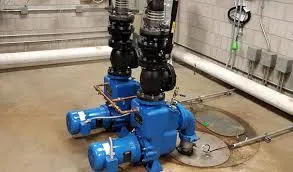English
- Afrikaans
- Albanian
- Amharic
- Arabic
- Armenian
- Azerbaijani
- Basque
- Belarusian
- Bengali
- Bosnian
- Bulgarian
- Catalan
- Cebuano
- Corsican
- Croatian
- Czech
- Danish
- Dutch
- English
- Esperanto
- Estonian
- Finnish
- French
- Frisian
- Galician
- Georgian
- German
- Greek
- Gujarati
- Haitian Creole
- hausa
- hawaiian
- Hebrew
- Hindi
- Miao
- Hungarian
- Icelandic
- igbo
- Indonesian
- irish
- Italian
- Japanese
- Javanese
- Kannada
- kazakh
- Khmer
- Rwandese
- Korean
- Kurdish
- Kyrgyz
- Lao
- Latin
- Latvian
- Lithuanian
- Luxembourgish
- Macedonian
- Malgashi
- Malay
- Malayalam
- Maltese
- Maori
- Marathi
- Mongolian
- Myanmar
- Nepali
- Norwegian
- Norwegian
- Occitan
- Pashto
- Persian
- Polish
- Portuguese
- Punjabi
- Romanian
- Russian
- Samoan
- Scottish Gaelic
- Serbian
- Sesotho
- Shona
- Sindhi
- Sinhala
- Slovak
- Slovenian
- Somali
- Spanish
- Sundanese
- Swahili
- Swedish
- Tagalog
- Tajik
- Tamil
- Tatar
- Telugu
- Thai
- Turkish
- Turkmen
- Ukrainian
- Urdu
- Uighur
- Uzbek
- Vietnamese
- Welsh
- Bantu
- Yiddish
- Yoruba
- Zulu
Telephone: +86 13120555503
Email: frank@cypump.com
Oct . 10, 2024 11:48 Back to list
single and double suction centrifugal pump
Single and Double Suction Centrifugal Pumps An Overview
Centrifugal pumps are a fundamental component in various industrial applications, providing efficient fluid movement across a plethora of sectors, including water treatment, oil and gas, and chemical processing. Among the diverse types of centrifugal pumps, single suction and double suction designs stand out due to their unique operational characteristics and applications. This article will explore these two types of pumps, highlighting their features, advantages, and suitability for different applications.
Understanding Centrifugal Pumps
Centrifugal pumps operate based on the principle of converting mechanical energy into hydraulic energy through the movement of rotating blades, or impellers. As the impeller spins, it imparts velocity to the fluid, which is then directed to the pump discharge. The design of the impeller and the pump casing largely determines the pump’s efficiency, flow rate, and pressure capabilities.
Single Suction Centrifugal Pumps
Single suction centrifugal pumps utilize an impeller that draws fluid from one side, typically the front of the pump. This design complicates the suction process slightly since it requires that the pump be properly vented to avoid air lock, which can impede performance. Single suction pumps are known for their simplicity in design, making them easier to manufacture and maintain.
Advantages 1. Compact Design Due to fewer components, single suction pumps tend to be more compact, making them suitable for installations with limited space. 2. Cost-Effective Generally, single suction pumps are less expensive both in terms of initial purchase price and maintenance costs. 3. Simplicity The simpler design allows for ease of operation and troubleshooting, making them a popular choice for smaller applications.
Applications Single suction centrifugal pumps often find use in applications with lower flow rates and head pressures. They are ideal for irrigation, fire-fighting systems, and water supply systems in municipal and agricultural contexts.
Double Suction Centrifugal Pumps
single and double suction centrifugal pump

In contrast, double suction centrifugal pumps boast impellers that draw fluid from both sides, effectively splitting the flow and providing a balanced operation
. This design feature allows for greater flow rates and head pressures than is typically achievable with single suction pumps.Advantages 1. Higher Efficiency The symmetrical design reduces hydraulic imbalance and vibration, promoting smoother operation and increased efficiency. 2. Increased Flow Capacity With the ability to draw from two sides, double suction pumps can handle larger volumes of fluid, making them suitable for high-capacity needs. 3. Durability The balanced operation tends to result in less wear and tear, prolonging the operational life of the pump.
Applications Double suction centrifugal pumps are commonly employed in larger industrial settings, including HVAC systems, power plants, and large-scale water and wastewater treatment plants. Their ability to handle high flow rates makes them ideal for these demanding environments.
Choosing the Right Pump
The decision between single and double suction centrifugal pumps often depends on specific application requirements, including
- Flow Rate Assess the volume of fluid that needs to be moved. For high flow applications, double suction pumps may be more suitable. - Head Pressure Consider the pressure requirements for the fluid system. Double suction pumps are generally better at handling higher head pressures. - Space Constraints If space is an issue, single suction pumps might offer a more compact solution. - Budget Analyze both initial costs and long-term maintenance expenses, as single suction pumps tend to be more economical.
Conclusion
Both single and double suction centrifugal pumps have their unique pros and cons, making them suitable for various applications. Understanding the operational principles, advantages, and ideal use cases of each type can help decision-makers select the best pump for their specific needs. Whether for industrial use, municipal systems, or agricultural irrigation, the right centrifugal pump can significantly enhance efficiency and reliability in fluid handling operations.
-
ISG Series Vertical Pipeline Pump - Chi Yuan Pumps Co., LTD.|Advanced Hydraulic Design&Energy-Efficient Solutions
NewsJul.30,2025
-
ISG Series Vertical Pipeline Pump - Chi Yuan Pumps Co., LTD.
NewsJul.30,2025
-
ISG Series Vertical Pipeline Pump - Chi Yuan Pumps Co., LTD.|energy-efficient fluid handling&industrial durability
NewsJul.30,2025
-
ISG Series Vertical Pipeline Pump - Chi Yuan Pumps | Advanced Engineering&Industrial Efficiency
NewsJul.30,2025
-
ISG Series Pipeline Pump - Chi Yuan Pumps | High Efficiency, Energy Saving
NewsJul.30,2025
-
ISG Series Vertical Pipeline Pump-Chi Yuan Pumps|High Efficiency&Reliable Performance
NewsJul.29,2025










